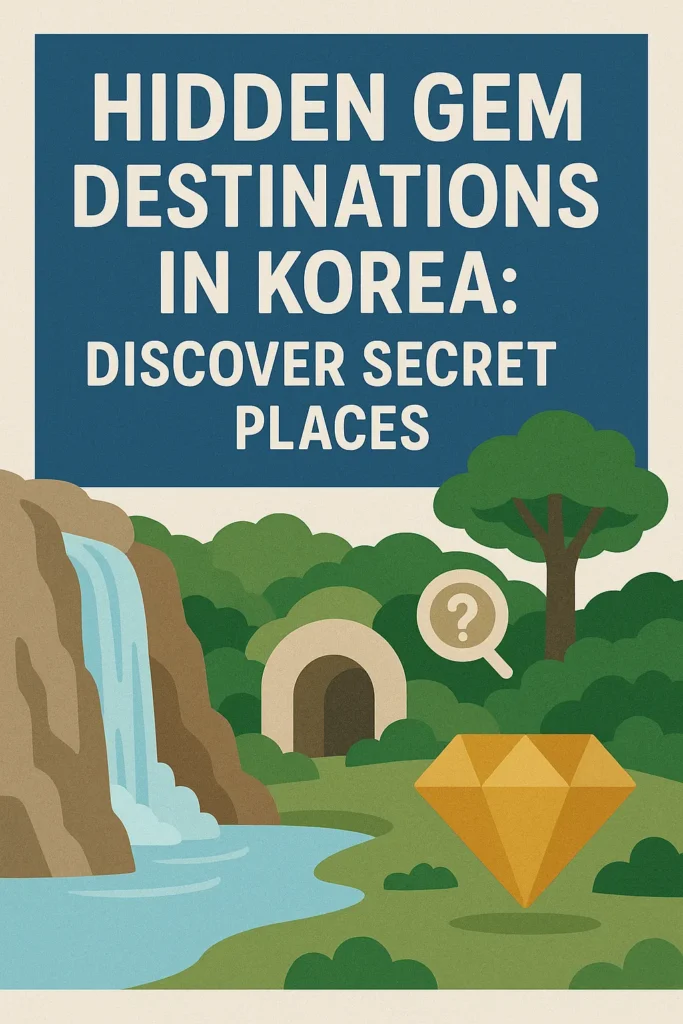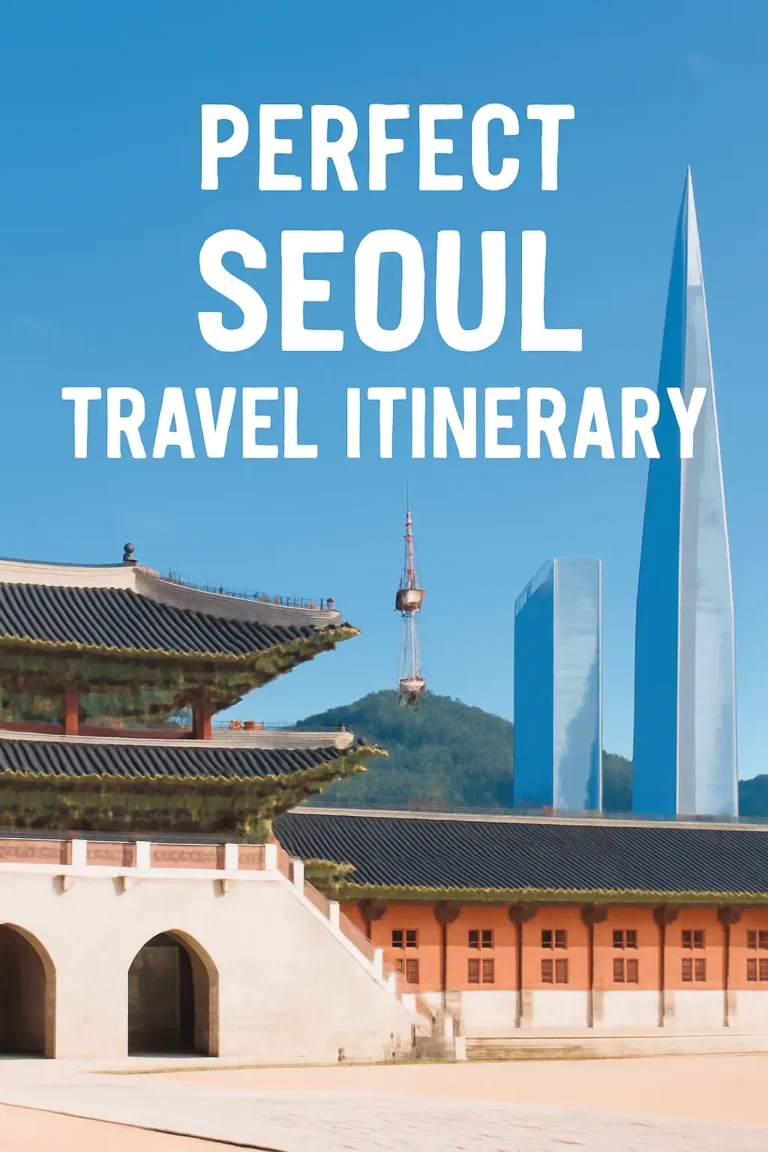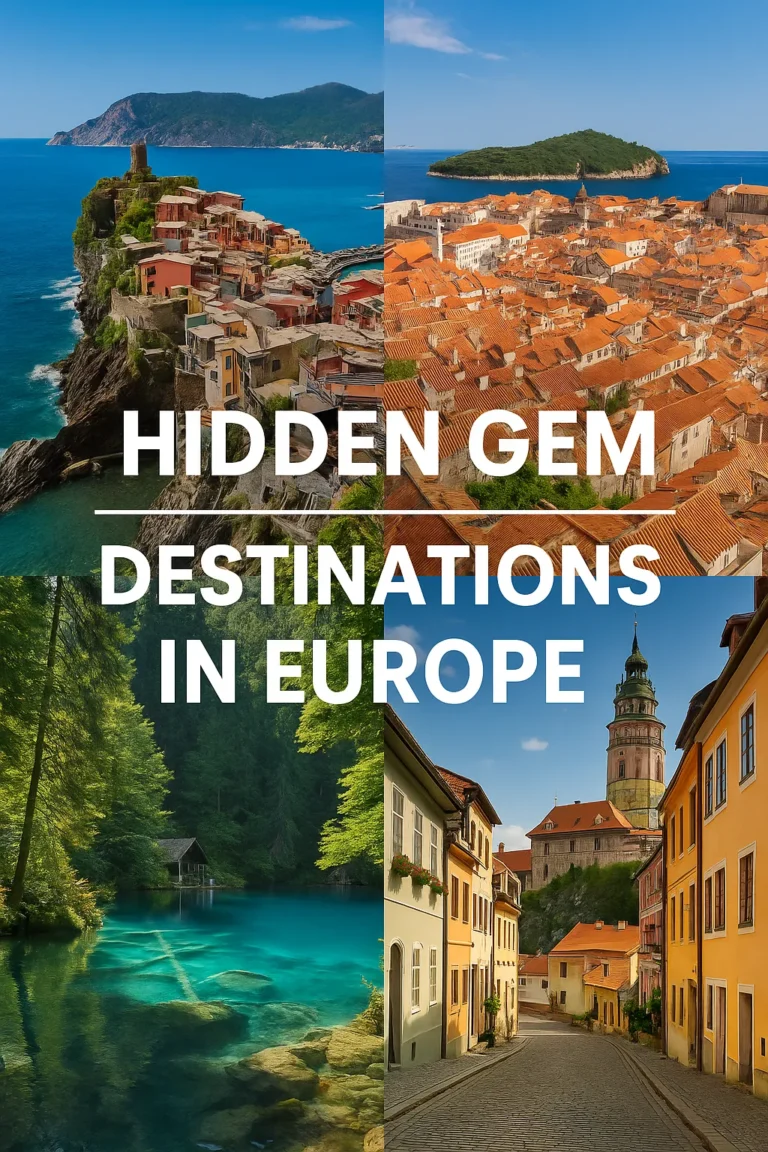Hidden Gem Destinations in Korea: Discover Secret Places

Beyond Korea’s famous attractions lies a treasure trove of hidden gem destinations in Korea waiting to be discovered by adventurous travelers. While millions flock to Seoul’s palaces and Busan’s beaches, these secret places offer authentic Korean experiences without the crowds. From pristine mountain valleys and traditional fishing villages to ancient temples hidden in misty forests, Korea’s lesser-known destinations provide intimate encounters with the country’s natural beauty and rich cultural heritage. This comprehensive guide reveals the most spectacular hidden gem destinations in Korea, complete with insider tips for accessing these secret places and experiencing authentic Korean culture away from the tourist trail.
Stunning Natural Hidden Gems in Korea
Udo Island: Jeju’s Secret Paradise
While most visitors rush to Jeju’s main attractions, Udo Island remains one of the most beautiful hidden gem destinations in Korea. This tiny coral island, accessible by a short 15-minute ferry ride from Jeju’s eastern coast, offers pristine white sand beaches, crystal-clear emerald waters, and rolling green hills dotted with traditional stone walls. The island’s Seobin Baeksa Beach features powder-soft coral sand unique to Korea, while Hagosudong Beach provides excellent snorkeling opportunities. Rent a bicycle or electric scooter to explore the 4-kilometer island perimeter, visiting the iconic Udo Lighthouse and tasting the famous Udo peanut ice cream made from locally grown peanuts.
Getting There: Ferry from Seongsan Port (₩5,500 round trip) | Best Time: April-October for beach activities | Insider Tip: Visit early morning or late afternoon to avoid day-trip crowds from mainland Jeju
Suncheonman Bay Wetland Reserve
The Suncheonman Bay represents one of Korea’s most pristine hidden gem destinations in Korea, featuring the world’s largest colony of reed beds alongside diverse bird species and traditional salt farms. This UNESCO-protected wetland offers spectacular sunrise views over endless reed marshes that turn golden in autumn. The elevated Yongsan Observatory provides panoramic views of the entire bay, while wooden walkways allow close encounters with migrating birds including red-crowned cranes and white-naped cranes. The nearby Suncheon Bay National Garden showcases plants from around the world in beautifully landscaped settings.
Gyeongju Yangdong Folk Village
Step back in time at this UNESCO World Heritage site, one of the most authentic hidden gem destinations in Korea for experiencing traditional Korean life. Unlike touristy folk villages, Yangdong remains a living community where families have resided for over 500 years in traditional hanok houses. The village’s natural layout follows feng shui principles, with houses positioned according to social status along the mountainside. Visitors can participate in traditional activities like pottery making, hanbok wearing, and temple food preparation while learning about Joseon Dynasty aristocratic culture from elderly residents who speak limited English but communicate through warm gestures.
Secret Cultural and Historical Sites
Haeinsa Temple and Janggyeong Panjeon
Hidden deep in the mountains of Gayasan National Park, Haeinsa Temple houses one of Korea’s greatest treasures and ranks among the most significant hidden gem destinations in Korea. The temple’s Janggyeong Panjeon halls contain the complete Tripitaka Koreana – over 80,000 wooden printing blocks representing the entire Buddhist canon carved in the 13th century. The temple’s remote location, accessible via winding mountain roads, ensures peaceful contemplation opportunities away from crowds. The surrounding ancient forest provides excellent hiking trails, while the temple’s traditional architecture demonstrates centuries-old Korean craftsmanship.
Andong Hahoe Village
This crescent-shaped village along the Nakdong River stands as one of Korea’s most picturesque hidden gem destinations in Korea, preserving 600 years of traditional Korean architecture and customs. The village’s unique location, surrounded by cliffs and river bends, creates a natural fortress where time seems frozen in the Joseon Dynasty. Traditional masked dance performances occur regularly, while visitors can stay overnight in authentic hanok guesthouses operated by village families. The nearby Buyongdae Cliff offers spectacular sunset views over the village’s traditional rooftops and the meandering river below.
Seolbong Observatory and Tea Fields
Boseong County’s rolling green tea plantations create some of Korea’s most Instagram-worthy landscapes, yet remain among the lesser-known hidden gem destinations in Korea. The perfectly manicured tea terraces stretch across hillsides like green carpets, particularly stunning during early morning mist or golden hour lighting. Visitors can participate in traditional tea harvesting, learn about Korean green tea culture, and enjoy fresh tea tastings while overlooking the endless green fields. The annual Green Tea Festival in May offers additional cultural performances and local food specialties.
Off-the-Beaten-Path Mountain Retreats
Jirisan National Park’s Hidden Valleys
While Jirisan attracts serious hikers to its main peaks, the park’s hidden valleys offer some of Korea’s most secluded hidden gem destinations in Korea for nature lovers seeking solitude. The Piagol Valley becomes a natural art gallery during autumn with its spectacular fall foliage, while the Ssanggye Temple Valley provides year-round tranquility with crystal-clear streams and ancient temple complexes. These valleys offer excellent opportunities for forest bathing (shinrin-yoku), meditation retreats, and wildlife observation including the endangered Asiatic black bear.
Taebaeksan Mountain Range Secret Spots
The Taebaeksan region contains numerous hidden gem destinations in Korea perfect for alpine adventures and cultural exploration. The O2 Resort area offers excellent skiing in winter and mountain biking in summer, while the nearby Coal Museum provides insights into Korea’s mining heritage. The Jeongseon Rail Bike follows abandoned railway tracks through scenic mountain valleys, offering a unique perspective on Korea’s rugged interior landscape. High-altitude villages in this region preserve traditional mountain culture and offer homestay experiences with local families.
Coastal Hidden Gems and Island Escapes
Ulleungdo Island Adventure
This volcanic island in the East Sea represents one of Korea’s most remote and dramatic hidden gem destinations in Korea, offering rugged coastlines, pristine forests, and unique geological formations. The island’s isolation has preserved endemic plant species found nowhere else on Earth, while the dramatic sea cliffs and hidden coves provide excellent photography opportunities. Dokdo, Korea’s easternmost territory, can be viewed from Ulleungdo’s observation decks on clear days. The island’s squid and mountain vegetable specialties offer unique culinary experiences unavailable on the mainland.
Taean Peninsula Secret Beaches
The Taean Peninsula along Korea’s west coast contains numerous secluded beaches and coastal hidden gem destinations in Korea perfect for peaceful retreats. Mallipo Beach offers fine sand and excellent windsurfing conditions, while the nearby Anmyeondo Island provides hot springs and pine forests. The coast’s dramatic tidal changes create extensive mudflats perfect for clam digging and bird watching. Traditional fishing villages along the peninsula offer authentic seafood experiences and opportunities to join local fishing excursions.
Seasonal Hidden Gems Throughout Korea
Spring Cherry Blossom Secret Spots
While crowds pack famous cherry blossom locations, these hidden gem destinations in Korea offer equally spectacular spring blooms without the masses. The Hadong Hwagae Marketplace tunnel, lined with centuries-old cherry trees, creates a natural cathedral of pink blossoms in early April. Jinhae’s lesser-known Yeojwacheon Stream provides romantic cherry blossom walks alongside flowing water, while the Gunsan Modern History District combines Japanese colonial architecture with stunning spring flowers for unique photography opportunities.
Autumn Foliage Hidden Treasures
Korea’s autumn colors transform these secret hidden gem destinations in Korea into natural masterpieces from October through November. The Naejangsan Temple area offers spectacular red maple displays away from the main park crowds, while the Sobaeksan ridge trail provides panoramic mountain views painted in gold and crimson. The traditional village of Mungyeong Saejae features ancient mountain passes surrounded by vibrant fall colors, creating perfect settings for hiking and cultural exploration.
Authentic Cultural Experiences at Hidden Sites
Temple Stay Programs Off the Tourist Trail
Several remote temples offer immersive temple stay programs at these peaceful hidden gem destinations in Korea, providing authentic Buddhist cultural experiences. Golgulsa Temple specializes in Sunmudo martial arts training combined with meditation practice, while Geumsansa Temple in Jeonbuk Province offers traditional paper-making workshops alongside standard temple activities. These programs typically include meditation sessions, vegetarian temple food preparation, and opportunities to learn Buddhist philosophy from resident monks.
Traditional Craft Villages
Korea’s artisan villages represent living hidden gem destinations in Korea where traditional crafts continue thriving in the modern era. Icheon’s pottery village allows visitors to try their hand at creating traditional Korean ceramics using techniques passed down through generations. The traditional paper village of Jeonju offers hanji-making workshops where participants learn to create beautiful Korean paper from mulberry bark. These experiences provide deep insights into Korean artistic traditions while supporting local artisan communities.
Getting to Korea’s Hidden Destinations
Transportation Tips for Remote Areas
Reaching these hidden gem destinations in Korea requires strategic transportation planning beyond Korea’s excellent urban transit systems. Rental cars provide maximum flexibility for exploring remote mountain areas and coastal regions, with most international driving permits accepted. Regional buses connect major cities to smaller towns, though schedules may be limited and Korean language skills helpful. For island destinations, ferry services operate regularly but weather can affect schedules, particularly during winter months.
Accommodation Strategies
Staying near these hidden gem destinations in Korea often means choosing traditional guesthouses, mountain lodges, or temple accommodations over standard hotels. Hanok guesthouses provide authentic architecture experiences with modern amenities, while mountain huts offer basic but clean accommodations for serious hikers. Booking in advance is essential for popular seasons, and some locations require Korean language skills for reservation processes. Consider bringing translation apps or working with Korean travel agencies for seamless planning.
Planning Your Hidden Gems Korea Itinerary
Multi-Day Hidden Destinations Tour
Creating an effective itinerary for Korea’s hidden gem destinations in Korea requires balancing travel time with exploration opportunities. A two-week journey might include three days exploring Gyeongju’s historical sites, four days island-hopping between Jeju and Ulleungdo, three days hiking in Jirisan’s remote valleys, and four days experiencing traditional culture in Andong and surrounding areas. This pacing allows deep exploration while minimizing rushing between destinations.
Budget Considerations for Hidden Gems
Exploring hidden gem destinations in Korea often costs less than visiting major tourist areas, though transportation to remote locations can increase expenses. Budget approximately ₩100,000-150,000 daily for accommodation, meals, and activities at these destinations, with additional costs for rental cars or chartered transportation. Many temple stays and traditional guesthouses offer exceptional value, including meals and cultural activities. Local restaurants in small towns typically offer authentic Korean cuisine at very reasonable prices.
Discovering Korea’s Best-Kept Secrets
These remarkable hidden gem destinations in Korea prove that the country’s greatest treasures often lie beyond the well-trodden tourist paths. From pristine natural landscapes and ancient cultural sites to authentic village experiences and spiritual retreats, Korea’s secret places offer transformative travel experiences for those willing to venture beyond the obvious attractions. Each destination provides unique insights into Korean culture, history, and natural beauty while offering peaceful alternatives to crowded tourist sites. The key to discovering these hidden gems lies in embracing slower travel, connecting with local communities, and remaining open to unexpected discoveries. Whether seeking spiritual enlightenment at remote temples, cultural immersion in traditional villages, or natural beauty in untouched landscapes, Korea’s hidden destinations reward curious travelers with authentic experiences and lasting memories. These secret places represent the true soul of Korea – timeless, beautiful, and waiting to be discovered by travelers who appreciate depth over superficial sightseeing. Plan your journey to these hidden gem destinations in Korea and experience the country’s most precious secrets that few visitors ever encounter.




